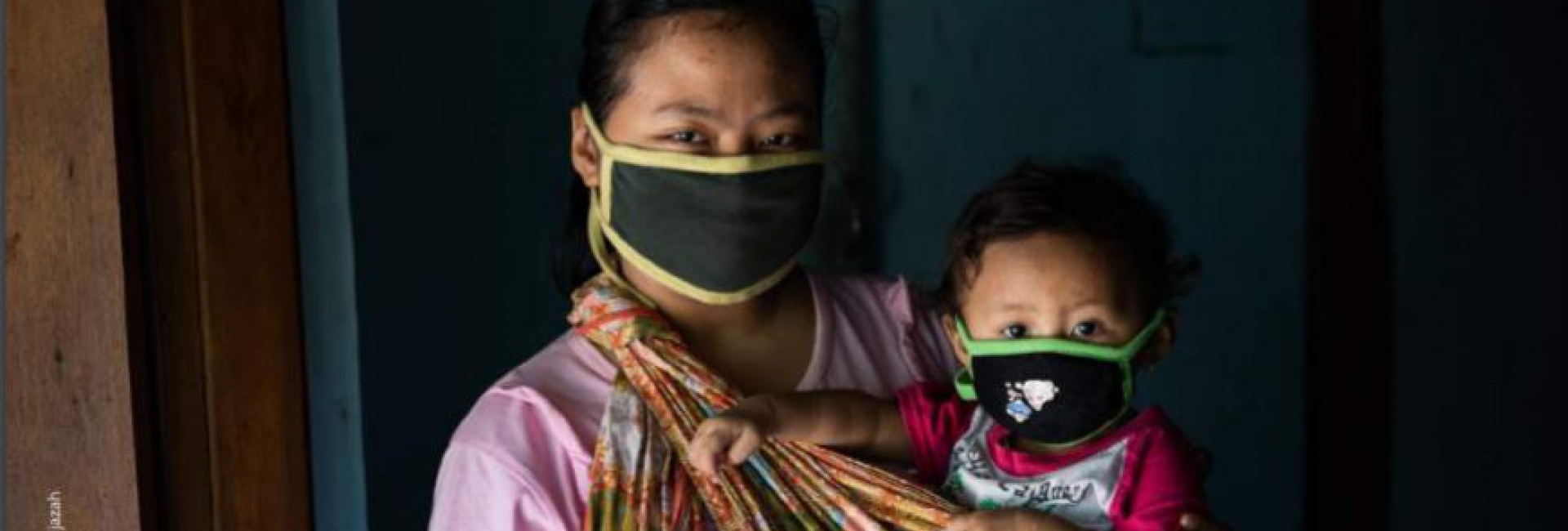The COVID-19 pandemic in Indonesia has a big socioeconomic impact beyond the health sector. The impact is multisectoral and its effects will be seen over an extended period of time, hitting the poor and vulnerable the hardest. The scope of the damage is difficult to fully anticipate at this point. While the Government is making efforts to cushion the impact, households–particulary the poor and the most vulnerable–will be severely affected by the pandemic. Female-headed households and their children will be especially affected. Monitoring and assessing the socioeconomic impact of the pandemic on households is an important and requisite first step to gather data and generate evidence to help counter the impact.
In this study, we will conduct an assessment of the socioeconomic impacts of the COVID-19 pandemic, including potential secondary and tertiary impacts, on households in the hardest hit areas—with particular focus on vulnerable groups, such as children, women, the self-employed, daily workers, and people with disabilities. This study will cover areas of livelihoods, employment, access to social services, and people’s efforts to strengthen their economic resilience.
The assessment will be followed with policy recommendations and programmatic measures and actions for the implementation of programs aimed at mitigating the impact of the crisis on the most vulnerable and prevent them from sliding back to poverty.
The assessment will serve the following purposes.
- To monitor the socioeconomic status of households and assess the impact of the COVID-19 pandemic on their livelihoods, food security, and well-being
- To provide an analysis and policy recommendations for the government on the depth of the socioeconomic impact of the COVID-19 pandemic on various household groups as well as strategic planning for the recovery that focuses on mitigating the secondary impacts of the pandemic, including on how to expand the social protection
We will employ both quantitative and qualitative methods with surveys and in-depth interviews. In the quantitative survey, SMERU will play a role in preparation and analysis stages, but not in data collection. The preparation stage includes giving an input of the sampling framework and developing instruments. The analysis from the quantitative survey will measure the impact of the COVID-19 pandemic on households’ income generation, employment status, food security, access to basic services, well-being of women and children, people with disabilities, mental health, and social protection measures. The qualitative method will complement the quantitative data analysis and is employed to acquire comprehensive understanding of the social phenomenon within the households (particularly women) and towards children and people with disabilities. Several main questions for the qualitative approach are as follows.
- How do children and households with members with disabilities access basic services (sanitation, routine health services, and education) of the same quality as before the COVID-19 pandemic?
- How are women and children dealing with their daily lives (parenting, e-learning, increased multiple roles of women) after the government-imposed restrictions on mobility during the COVID-19 pandemic? In particular, adolescent girls in low-income households are at higher risk of child-marriage and child labor to cope with the economic downturn.
- How have family dynamic interactions and kinship changed in relation to the socioeconomic support for those hit the most by the COVID-19 pandemic (i.e., households with members who have tested positive for COVID-19 or households with breadwinners who have lost the source of their income)?





